TechNET FAQsFrustrated with your computer or the lingo? Well check out these FAQ’s. We may be able to answer your questions right now!
1. What’s the difference between a computer virus, a Trojan horse, malware, spyware, a key logger, etc.? There are technical differences. A virus is a program that is capable of replicating itself and attaching to other programs on the computer until the program quits working. It also can pass itself from one computer to another via exchanged files or even a local network. A Trojan horse is a program that installs itself on your computer and then performs some probably nefarious tasks, like inviting others into your computer or sending information from your computer back to some central location. This information might be something designed as market research or more seriously personal or financial information that resides on your computer. A key logger is a particular type of Trojan horse that lurks in the background and traps keystrokes as you type and then sends them back to someone somewhere. The problem is that these keystrokes may be your social security number, a password or a financial website login. Adware and spyware are umbrella terms that refer mainly to the purpose and not the method. The term “malware” is a bigger umbrella that all of these other threats fit under. 2. What’s the best anti-virus program? This is a matter of opinion not fact and even the educated opinions change from time to time. My experience is that all of the legitimate anti- virus programs work, they all have holes and they all have idiosyncrasies. At his point in time, we recommend that people use AVG CloudCare. It offers complete protection against viruses, trojans, worms, adware, spyware and malware and it also includes a firewall and remote service from Jackpine. It does not unnecessarily bog your system down or include confusing and probably unnecessary auxiliaries. 3. What is a CPU and what does “dual core” or "quad core" mean? The CPU is the central processing unit: it’s the brains of the computer; it’s where the actual computing takes place. (You can think of it like the engine in a car.) A CPU resides on a chip inside the computer. Nowadays, chip designers put more than one CPU on a chip and so you see reference to “dual core” or “quad core.” This is typically cheaper to manufacture, uses less energy and produces less heat then multiple processor chips. Through the magic of chip design and software, the multiple processors act like one to give you higher performance. 4. What’s the difference between RAM memory and storage? RAM Memory is the volatile area where all of the work takes place. It’s analogous to the top of your desk or the top of a work table, so the bigger memory, the more work you can spread out and process at the same time. It is contained in chips inside your computer. Storage is, like it sounds, where the information is kept when it is not being worked on. It’s analogous to a file cabinet. Information is usually stored as a magnetic charges on sealed spinning hard disks inside your computer. So when you do something on a computer, you a) take a file out of a folder (just like in the physical world), b) spread it out in the memory (like on the top of your desk), c) process it (add, subtract, write, draw) and then d) save it when you’re done (put it back in the folder in the file cabinet). 5. How frequently should I back up my information? I always tell people to think of when you would cry if you lost everything and make sure that you back up before that. For some people that would be every 10 minutes and for others, there may be no information that they have that they would mind losing. Today’s computers are quite reliable and we get lulled into the false supposition that nothing can go wrong. But you have to remember that it is not a matter of whether something will go wrong, but a matter of when...and we always have to assume that it will fail tomorrow or sooner. Backups can be done on Flash Drive, CDs or DVDs, External Hard Drives, another computer on your network or in the Cloud. 6. What is the “Cloud?” The cloud simply refers to information or applications that reside on a server out on the internet somewhere. You probably use some cloud applications now, like Gmail, Hotmail or your favorite bank or broker. Applications that are not cloud based would be mail applications like Outlook or Thunderbird, financial applications like QuickBooks, Quicken or Microsoft Money, and word processing and spreadsheet applications. Many of the application that we used to run locally are now available as "cloud" applications.There are definite advantages to cloud applications, availability from anywhere and often any device, automatic updates and automatic backups. Disadvantages include possible security issues and often somewhat less functionality. 7. I like to take photos. Do I need a super powerful computer? Probably not. Remember, people have been handling photos on computers for a long time and some of those older computers are pretty slow and primitive by today’s standards. Computer vendors like to sell you additional memory and special video cards if you mention photos, but most computers have plenty of power to do a fine job. 8. What’s the difference between a Flash Drive and a Thumb Drive? No difference. They’re just different names for the same thing. 9. Why do they call somebody who knows a fair amount about computer systems a “guru” or a “wizard?” Arthur C. Clark said that “Any sufficiently advanced technology is indistinguishable from magic,” thus the appellation. 10. My computer is running slow. What can I do to speed it up? If it suddenly got slow, then you probably have some sort of software problem. It could be a corrupt anti-virus, or it could be a malware infection. It might need a professional cleaning. If it just generally seems doggy, it could be that you need more RAM memory. Adding RAM memory is the single most cost effective thing that you can do to make your computer run more efficiently. Applications these days require a lot more memory than older programs. RAM these days is relatively cheap. Go for it. |
Contact the TechNET Department directly
- Voice 800-968-8999 X3
- EMail [email protected]
Contact the office supplies department directly!
Phone: 800-968-8999 X1 (manistee) X2 (ludington)
Email: Manistee [email protected] - Ludington [email protected]
Email: Manistee [email protected] - Ludington [email protected]






